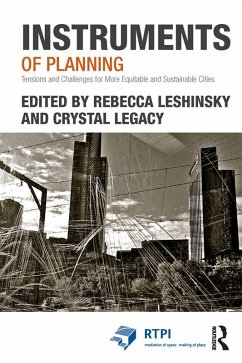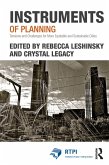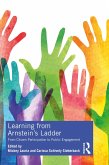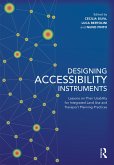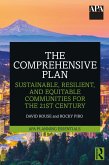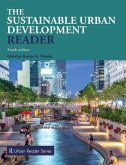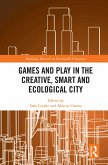Instruments of Planning (eBook, PDF)
Tensions and challenges for more equitable and sustainable cities
Redaktion: Leshinsky, Rebecca; Legacy, Crystal
56,95 €
56,95 €
inkl. MwSt.
Sofort per Download lieferbar

28 °P sammeln
56,95 €
Als Download kaufen

56,95 €
inkl. MwSt.
Sofort per Download lieferbar

28 °P sammeln
Jetzt verschenken
Alle Infos zum eBook verschenken
56,95 €
inkl. MwSt.
Sofort per Download lieferbar
Alle Infos zum eBook verschenken

28 °P sammeln
Instruments of Planning (eBook, PDF)
Tensions and challenges for more equitable and sustainable cities
Redaktion: Leshinsky, Rebecca; Legacy, Crystal
- Format: PDF
- Merkliste
- Auf die Merkliste
- Bewerten Bewerten
- Teilen
- Produkt teilen
- Produkterinnerung
- Produkterinnerung

Bitte loggen Sie sich zunächst in Ihr Kundenkonto ein oder registrieren Sie sich bei
bücher.de, um das eBook-Abo tolino select nutzen zu können.
Hier können Sie sich einloggen
Hier können Sie sich einloggen
Sie sind bereits eingeloggt. Klicken Sie auf 2. tolino select Abo, um fortzufahren.

Bitte loggen Sie sich zunächst in Ihr Kundenkonto ein oder registrieren Sie sich bei bücher.de, um das eBook-Abo tolino select nutzen zu können.
Instruments of Planning explores planning's instrumentality to deliver important social and environmental outcomes in neoliberal planning landscapes.
- Geräte: PC
- mit Kopierschutz
- eBook Hilfe
- Größe: 4.22MB
Andere Kunden interessierten sich auch für
![Instruments of Planning (eBook, ePUB) Instruments of Planning (eBook, ePUB)]() Instruments of Planning (eBook, ePUB)56,95 €
Instruments of Planning (eBook, ePUB)56,95 €![Learning from Arnstein's Ladder (eBook, PDF) Learning from Arnstein's Ladder (eBook, PDF)]() Learning from Arnstein's Ladder (eBook, PDF)39,95 €
Learning from Arnstein's Ladder (eBook, PDF)39,95 €![Designing Accessibility Instruments (eBook, PDF) Designing Accessibility Instruments (eBook, PDF)]() Designing Accessibility Instruments (eBook, PDF)52,95 €
Designing Accessibility Instruments (eBook, PDF)52,95 €![Reflective Planning Practice (eBook, PDF) Reflective Planning Practice (eBook, PDF)]() Richard WillsonReflective Planning Practice (eBook, PDF)34,95 €
Richard WillsonReflective Planning Practice (eBook, PDF)34,95 €![The Comprehensive Plan (eBook, PDF) The Comprehensive Plan (eBook, PDF)]() David RouseThe Comprehensive Plan (eBook, PDF)34,95 €
David RouseThe Comprehensive Plan (eBook, PDF)34,95 €![The Sustainable Urban Development Reader (eBook, PDF) The Sustainable Urban Development Reader (eBook, PDF)]() The Sustainable Urban Development Reader (eBook, PDF)49,95 €
The Sustainable Urban Development Reader (eBook, PDF)49,95 €![Games and Play in the Creative, Smart and Ecological City (eBook, PDF) Games and Play in the Creative, Smart and Ecological City (eBook, PDF)]() Games and Play in the Creative, Smart and Ecological City (eBook, PDF)40,95 €
Games and Play in the Creative, Smart and Ecological City (eBook, PDF)40,95 €-
-
-
Instruments of Planning explores planning's instrumentality to deliver important social and environmental outcomes in neoliberal planning landscapes.
Dieser Download kann aus rechtlichen Gründen nur mit Rechnungsadresse in A, B, BG, CY, CZ, D, DK, EW, E, FIN, F, GR, HR, H, IRL, I, LT, L, LR, M, NL, PL, P, R, S, SLO, SK ausgeliefert werden.
Produktdetails
- Produktdetails
- Verlag: Taylor & Francis eBooks
- Seitenzahl: 276
- Erscheinungstermin: 11. August 2015
- Englisch
- ISBN-13: 9781317607885
- Artikelnr.: 43591797
- Verlag: Taylor & Francis eBooks
- Seitenzahl: 276
- Erscheinungstermin: 11. August 2015
- Englisch
- ISBN-13: 9781317607885
- Artikelnr.: 43591797
- Herstellerkennzeichnung Die Herstellerinformationen sind derzeit nicht verfügbar.
Rebecca Leshinsky is a Senior Lecturer in Property, School of Property, Construction and Project Management, RMIT University, Melbourne, Australia, and the author of a number of practitioner books in the areas of property and strata law. Crystal Legacy is an Australian Research Council (DECRA) Fellow and a Vice Chancellor's Research Fellow in the Centre for Urban Research at RMIT University. She is co-editor of Building Inclusive Cities: Women's safety and the right to the city (Routledge).
1. Planning instruments and the urban change process Part 1. Planning
challenges in a context of discontinuous growth 2. Towards equitable
intensification: Restricting developer gain and compensating planning costs
3. Freedom's prospect? Re-thinking red and green tape reform as a planning
instrument 4. The problem/solution nexus and its effects on public
consultation Part 2. Designing strategies for change 5. Community
deliberation as a procedural planning tool: Examination of Vancouver and
Melbourne 6. Targets for affordable housing: Supporting equitable and
sustainable urban growth 7. Social impact assessment: Strategic litigation
tool for planning law decision makers 8. A design-led approach for enabling
collective imagining of sustainable urban futures Part 3. Instruments to
implement change 9. Would you like a code with that? Place-based planning
and mapping neighbourhood fields of care 10. Transferable development
credits put growth in its place 11. Managing urban intensification through
conservation covenants 12. Regenerating cities: Creating the opportunity
for greyfield precinct infill development Part 4. Technology in planning:
Supporting urban policy and decision-making 13. Policy and planning on the
interface of socio-technical systems: Novel approaches to policy
development 14. Engaging the greyfields: Community engagement and co-design
in residential redevelopment of public housing 15. Technology in urban
planning: Spatial hedonic house price model as an information tool 16.
Instruments of planning: tensions and challenges for more equitable and
sustainable cities
challenges in a context of discontinuous growth 2. Towards equitable
intensification: Restricting developer gain and compensating planning costs
3. Freedom's prospect? Re-thinking red and green tape reform as a planning
instrument 4. The problem/solution nexus and its effects on public
consultation Part 2. Designing strategies for change 5. Community
deliberation as a procedural planning tool: Examination of Vancouver and
Melbourne 6. Targets for affordable housing: Supporting equitable and
sustainable urban growth 7. Social impact assessment: Strategic litigation
tool for planning law decision makers 8. A design-led approach for enabling
collective imagining of sustainable urban futures Part 3. Instruments to
implement change 9. Would you like a code with that? Place-based planning
and mapping neighbourhood fields of care 10. Transferable development
credits put growth in its place 11. Managing urban intensification through
conservation covenants 12. Regenerating cities: Creating the opportunity
for greyfield precinct infill development Part 4. Technology in planning:
Supporting urban policy and decision-making 13. Policy and planning on the
interface of socio-technical systems: Novel approaches to policy
development 14. Engaging the greyfields: Community engagement and co-design
in residential redevelopment of public housing 15. Technology in urban
planning: Spatial hedonic house price model as an information tool 16.
Instruments of planning: tensions and challenges for more equitable and
sustainable cities
1. Planning instruments and the urban change process Part 1. Planning
challenges in a context of discontinuous growth 2. Towards equitable
intensification: Restricting developer gain and compensating planning costs
3. Freedom's prospect? Re-thinking red and green tape reform as a planning
instrument 4. The problem/solution nexus and its effects on public
consultation Part 2. Designing strategies for change 5. Community
deliberation as a procedural planning tool: Examination of Vancouver and
Melbourne 6. Targets for affordable housing: Supporting equitable and
sustainable urban growth 7. Social impact assessment: Strategic litigation
tool for planning law decision makers 8. A design-led approach for enabling
collective imagining of sustainable urban futures Part 3. Instruments to
implement change 9. Would you like a code with that? Place-based planning
and mapping neighbourhood fields of care 10. Transferable development
credits put growth in its place 11. Managing urban intensification through
conservation covenants 12. Regenerating cities: Creating the opportunity
for greyfield precinct infill development Part 4. Technology in planning:
Supporting urban policy and decision-making 13. Policy and planning on the
interface of socio-technical systems: Novel approaches to policy
development 14. Engaging the greyfields: Community engagement and co-design
in residential redevelopment of public housing 15. Technology in urban
planning: Spatial hedonic house price model as an information tool 16.
Instruments of planning: tensions and challenges for more equitable and
sustainable cities
challenges in a context of discontinuous growth 2. Towards equitable
intensification: Restricting developer gain and compensating planning costs
3. Freedom's prospect? Re-thinking red and green tape reform as a planning
instrument 4. The problem/solution nexus and its effects on public
consultation Part 2. Designing strategies for change 5. Community
deliberation as a procedural planning tool: Examination of Vancouver and
Melbourne 6. Targets for affordable housing: Supporting equitable and
sustainable urban growth 7. Social impact assessment: Strategic litigation
tool for planning law decision makers 8. A design-led approach for enabling
collective imagining of sustainable urban futures Part 3. Instruments to
implement change 9. Would you like a code with that? Place-based planning
and mapping neighbourhood fields of care 10. Transferable development
credits put growth in its place 11. Managing urban intensification through
conservation covenants 12. Regenerating cities: Creating the opportunity
for greyfield precinct infill development Part 4. Technology in planning:
Supporting urban policy and decision-making 13. Policy and planning on the
interface of socio-technical systems: Novel approaches to policy
development 14. Engaging the greyfields: Community engagement and co-design
in residential redevelopment of public housing 15. Technology in urban
planning: Spatial hedonic house price model as an information tool 16.
Instruments of planning: tensions and challenges for more equitable and
sustainable cities
